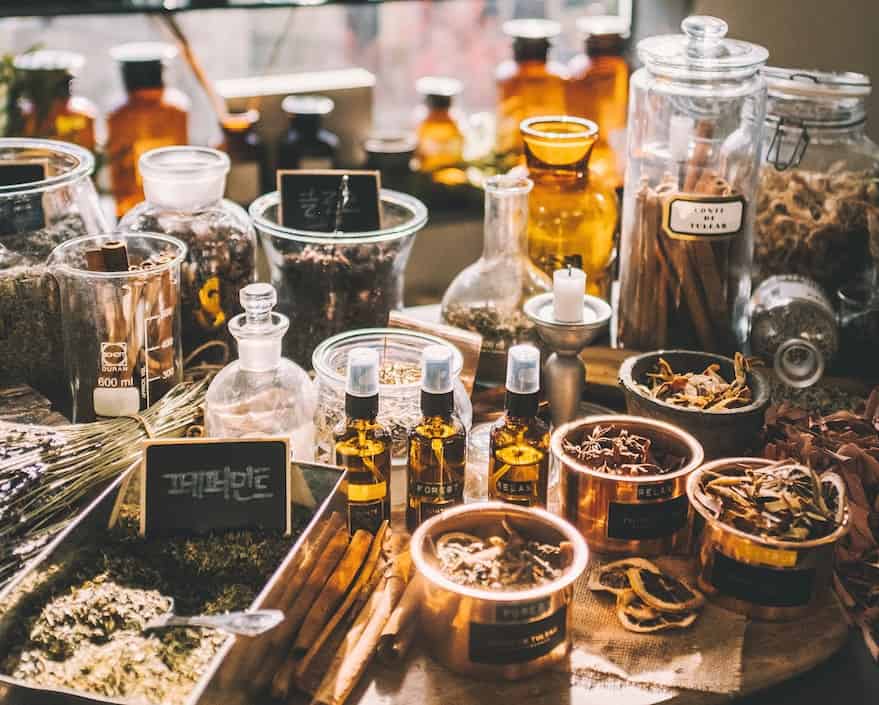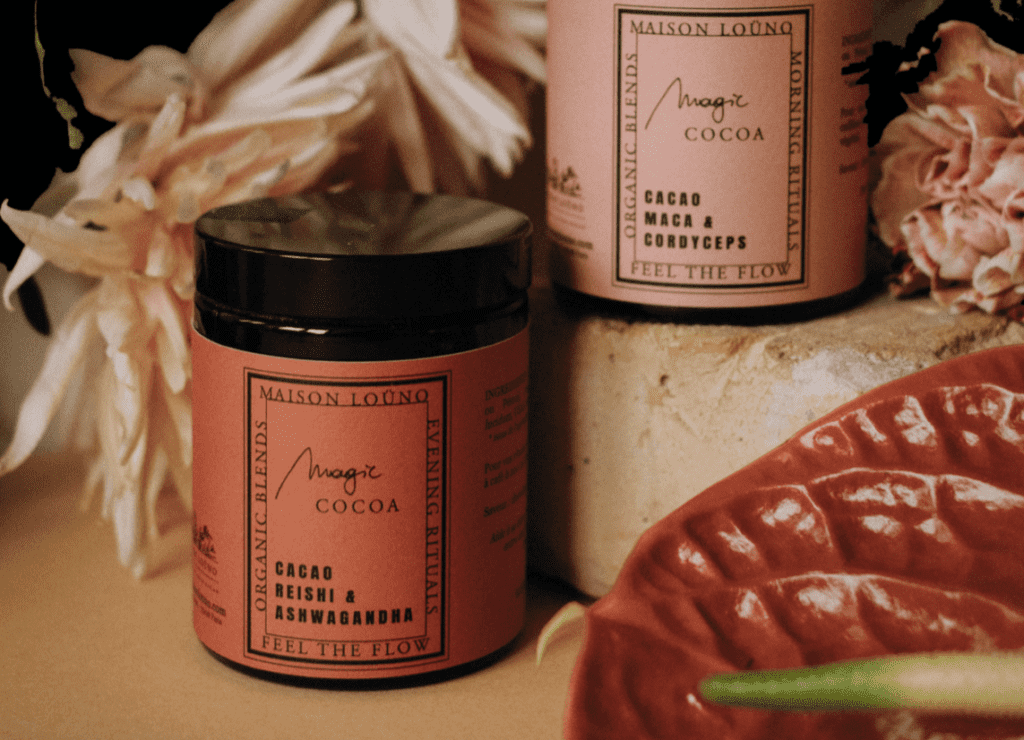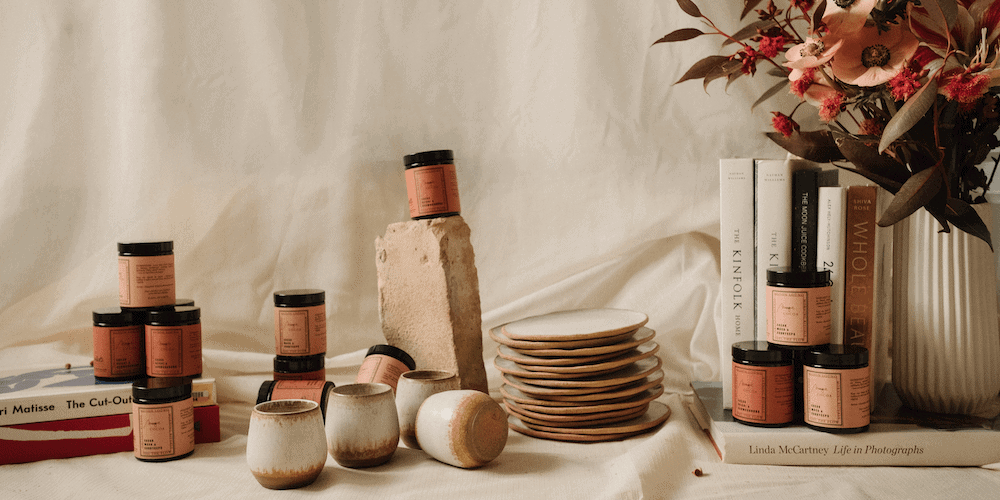What is an adaptogenic plant?
“I discovered adaptogens while working in large consulting and finance groups, with a busy and stress-filled daily life (…) By researching American blogs, I discovered cordyceps, chaga, and ashwagandha and started incorporating them into my routine.” shares Louise Skadhauge, the young founder of Maison Loüno. But what exactly is an adaptogenic plant?
When exploring natural health, one often encounters this category of roots, berries, and other mushrooms that, growing in hostile conditions (altitude, extreme temperatures…), have developed a remarkable capacity to adapt.
The most notable example is that of maca, a tuber cultivated in the Peruvian Andes between 3800 and 4500 meters altitude. It withstands high temperatures during the day, frost at night, strong winds, and intense climatic changes.
Also read the What is an adaptogenic plant?
The concept of adaptogenic plants emerged in the 1950s, thanks to the research of Russian pharmacologist Nicolai Lazarev. He observed that these plants increased the human body’s resistance to various stresses, both physical and psychological.

It was later discovered that an adaptogenic plant also has a stimulating effect on the body. Moreover, each plant has specific benefits (for example, cordyceps boosts the immune system, while ashwagandha reduces anxiety).
The list of these plants is not clearly defined. It’s difficult to find an authoritative body to establish it, but it is commonly accepted that adaptogens include:
An emerging trend
In Chinese, Ayurvedic, and other traditional medicines, such as those in the Andes, adaptogens have long been used and praised. In the West, the natural supplement industry has taken a keen interest in them for several decades. They are included in many formulas (capsules or powders) as more and more studies testify to their effectiveness.
However, their adaptogenic nature is not specifically highlighted, and even less placed at the heart of brands. They are used for their general benefits: stimulating, soothing, energizing, aphrodisiac…
This is where a new generation of holistic companies comes in, first in the United States. Think of brands like Sun Potion, which since 2011 has been promoting “adaptogens to cultivate your inner and outer radiance“, Anima Mundi Apothecary that emphasizes adaptogen mixes and elixirs, or Pearl Butter which created multicolored adaptogenic spreads.

In 2018, the New York Times explored this emerging trend, acknowledging the growing enthusiasm for them but also raising the lack of scientific backing and clarity about them “although the science is as murky as a mushroom drink, and these supplements are not regulated by the Food and Drug Administration, it doesn’t stop trendsetters from sharing their purported benefits, including adrenal support, stress reduction, hormone regulation, and a general sense of balance.”
Even though many studies validate the benefits of maca (source), ginseng (source), ashwagandha (source), the very concept of “adaptogen” is not unanimously accepted. Moreover, they must be consumed over time to start feeling their effects. And their effects, precisely, are not the same for everyone. It’s a long journey!
Yet, adaptogens meet the growing demands for natural health. And they perfectly fit holistic therapies, where one doesn’t treat a specific symptom but takes care of oneself as a whole: physically, emotionally, mentally, spiritually…
Read also The French favor natural health
Logically, adaptogens are arriving on the French market. Take a closer look at two pioneering startups in this field, which cultivate a holistic approach to health, well-being, and diet.
Maison Loüno: the creative house of well-being
Louise Skadhauge founded Maison Loüno at the end of 2017. During her five years in finance, she researched and developed natural solutions to combat stress and fatigue. Yoga, meditation, creation… and diet. She created a gluten-free psyllium bread (as she is intolerant), the Morgenbrød. Inspired by a recipe from Denmark, where her parents are originally from.

Initially intended for her personal use, the product was a great success when she tested its commercialization at a Christmas market. She then launched her “creative house of well-being” and expanded her range of healthy and tasty food products: muffin mixes, granolas, and… adaptogens.
“No one was offering them in France, and I thought it was a shame not to reintroduce these plants that are so valuable in traditional Chinese and Ayurvedic medicine. It’s a time of returning to the roots, reintegrating nature into our urban lives, and reflecting on our lifestyles. These plants have been an incomparable solution for me.”
In response to the absence of adaptogen mixes on the French market, Maison Loüno first offered American products (Sun Potion, Anima Mundi, which we mentioned earlier) before creating its own mixes: the Magic Cocoa.
These are cocoa powders, one for the morning with maca and cordyceps, the other for the evening with reishi and ashwagandha. Presented in glass jars, the idea is to mix, according to your “morning or evening ritual”, a teaspoon of powder in hot water or plant-based milk. They are organic, sourced, and personally composed by Louise in collaboration with an herbalist. The mixes are blended and packaged in Brittany.

“Our Magic Cocoa was instantly very popular! And we are very proud, it was really a big gamble to be the first adaptogen brand in France. But we took the risk, and I’m delighted because these plants have had a big impact on my life, and I am convinced they can help many others. There are still many questions on the subject, of course. It is also our role to share our experience and knowledge around us.”
As well-being is not limited to diet and Louise also has an artistic activity, Maison Loüno also offers handcrafted ceramics, beautiful stationery, utensils… A diverse and very personal universe followed by a large community on Instagram.
Hygée: Adaptogenic powders as nutritional supplements
It’s the latest addition to French brands dedicated to adaptogenic plants. The young entrepreneur Ehsane Cassam-Chenai launched Hygée at the start of 2020, after a career in finance and startups dedicated to food (Little Gustave, Food Panda). Introduced by his Indian grandmother to various medicinal powders, he is particularly interested in natural solutions that improve daily life.

“I wanted to address everyday troubles in a holistic way (…) At Hygée, we design nutritional supplements based on adaptogenic plants, berries, and mushrooms. Adaptogens primarily target stress in all its forms, to address specific issues (vitality, sleep, skin, etc.).”
Adaptogens are at the core of Hygée’s business, offering a well-designed range of four adaptogenic powders. They target four specific needs: immunity, beauty, energy, and serenity. The formulas are minimalist and rich in active ingredients. For instance, the energy formula contains ginseng, maca, inulin, açaí berry, and moringa.

Again, we speak of a “ritual” rather than a “routine.” We mix the powders with our coffee, smoothie, tea, or juice. We encourage synergies to optimize the effects. The powders are organic and produced in a GMP-certified laboratory in Drôme. Ehsane developed his products in collaboration with Régis Meyronet, a doctor in chiropractic and nutrition.
“We are still in the early stages in France. However, there is a real appetite for functional food in the broad sense. There is a real awareness of the impact of nutrition on a preserved health and well-being, on the choice of ingredients we consume. The period we are living will only strengthen this trend in my opinion.” he concludes.



